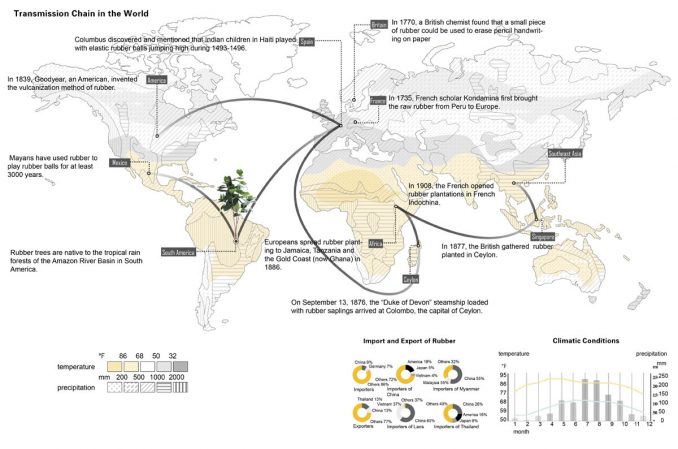
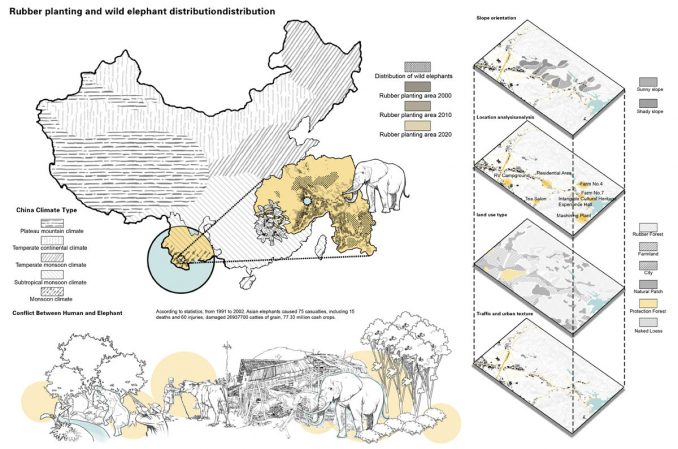
Rubber not only provides people with light industrial products such as daily use and medical use but also provides raw materials and rubber manufacturing equipment for many heavy industries. Half of China’s rubber is produced in Yunnan, while 64% of Yunnan’s rubber comes from Banna. Meanwhile, since Banna is located next to the border of China, the local rubber industry plays a critical role in drug control. At the same time, it also made great contributions to rural poverty alleviation. Generations of rubber farmers rely heavily on the rubber industry.
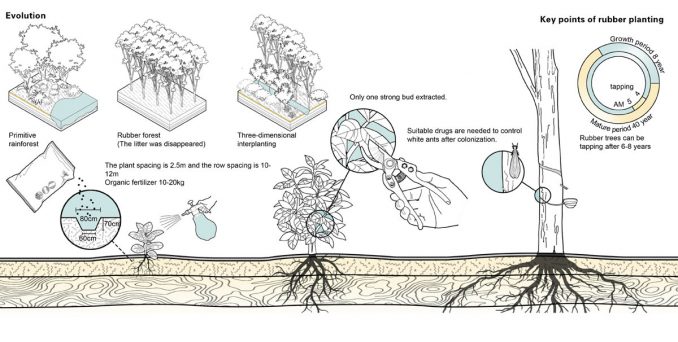
However, with the rapid expansion of the rubber industry, the original rainforest in Banna has been deforested and transferred into rubber farms, a monoculture forest without any other species. This kind of farming leads to a great ecological crisis, which is also known as the “green desert”. The expansion of rubber farms significantly reduced the food of wild elephants. As a result, wild elephants began to carry out abnormal migration activities and even started to enter farmland and cities, causing property losses and also becoming a threat to personal safety.
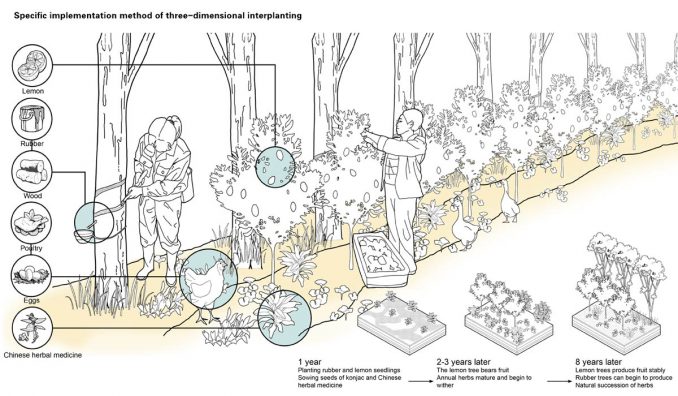
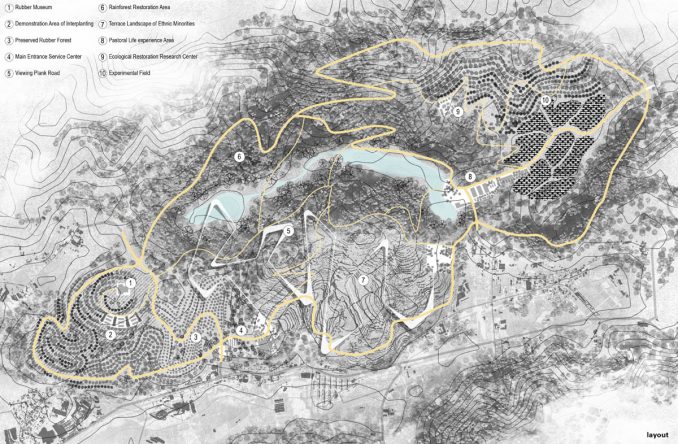
Elephant Oasis aims to mitigate the conflict between humans and elephants by developing a new farm system that balances the planting of rubber and ecological restoration. Within the study area, there is a rubber farm located next to the Manfeilong reservoir. At present, it is covered by rubber trees. Almost all the original natural rainforest has been destroyed. Even worse, some rubber forests that have reached production life were cut down by farmers, leaving a vacant lot without any vegetation on it. A pioneering project is launched with a new three-dimensional interplanting mode that replaces rubber farms with rainforest communities gradually. It will create a diverse landscape that provides food for wild elephants. The restored rainforest and sugarcane planting belt form a natural isolation belt. It provides a foraging place and habitat for wild elephants; they slow down or even no longer enter the village. The wild elephants’ who stay also become part of the landscape and attract visitors, The walkway made of wood and glass not only provides tourists with a good observation perspective but also minimizes the impact of human beings on wild elephants.
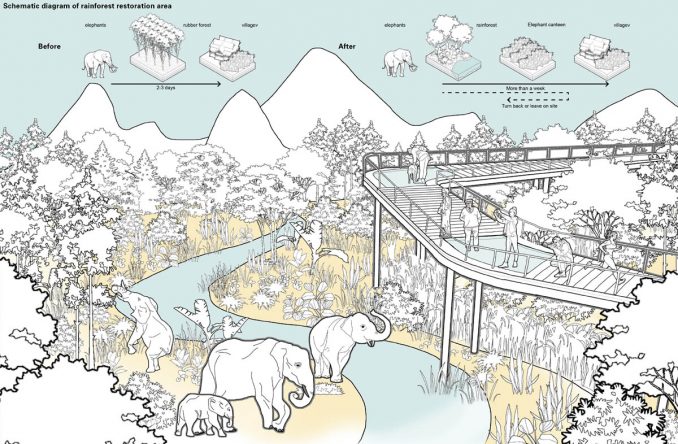
In the long run, this project will become a sustainable development model for the next ten years or more in advance to realize a virtuous cycle in which the benefits of mixed rubber forests are supplied to rainforest restoration, landscape benefits are generated by rainforest restoration, and landscape benefits support rubber replacement planting, and finally realize the harmonious coexistence of man and nature.
Student Project | Elephant Oasis | Jiajia Wang
Student Name: Jiajia Wang
School: Nanjing Forestry University
Advisors: Yiqing Wu
